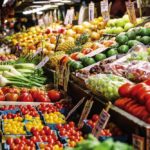Only open marketers
A lesson about Canadian Wheat Board democracy by MP David Anderson and prime minister Stephen Harper: legislation has been introduced to prevent small grain producers who deliver less than 40 tonnes to the CWB from voting in board elections. Mr. Anderson describes this as putting farmers first. But, the irony is that very large farmers that never deliver any board grains to the CWB would be still eligible to receive a voting ballot. Anderson and Harper say they want only real farmers voting in board elections.I think that means they only want open marketers voting in CWB elections. That’s what David Anderson calls “making the board more accountable.”Why does this legislation coming from the right wing Harper government not surprise me?Henry Neufeld,Waldeck, Sask.
Read Also

Powdery mildew can be combine fire risk
Dust from powdery mildew can cause fires in combines.
Don’t be rude
After spending a number of years in the call centre industry I’ve come to notice an ever growing culture of disconnect. Is this due to a critical failure in our education system, the daily barrage of negative information or simply a collective laziness of character, kindness or manners? The disrespect shown between humans is growing as we continue to remove ourselves from each other with our ever expanding digital communication. Yet people continue to move closer to each other by migrating to urban centres while perceiving cultural differences as ignorance or stupidity. Rudeness is becoming commonplace in this country as we grow impatient with ourselves and take our frustrations out on those around us. Please, before you pick up the phone and start yelling at the voice on the other end, take a moment to assess your situation, formulate your concerns in an understandable way and perhaps try asking for assistance instead of being a jackass.Reality shows that promote this type of behaviour are just that – scripted, ridiculous reality shows.Be kind. Show your positive character and manners in every interaction of every day and I promise you your life will be so much healthier, happier and wonderful.Be Canadian.And to the disgraceful companies that treat your customer service staff like disposable robots and your customers as nothing more than ATMs, smarten up. Don’t be such greedy jackasses.Jeff Leggat,Burnaby, B.C.
Next feedlot alley?
In your May 20 edition, an article titled “Feedlot expands east to follow grain” describes the proposal by Namaka Farms to construct a 36,000 head feedlot near Outlook, Sask.Stuart Thiessen, one of the principals of Namaka Farms, is quoted as saying, “the long term trend is going to shift to Saskatchewan.” Toward the end of the article there is a quote from Cor Van Raay: “There is no room for any new feedlots right now. We have overcapacity of feedlots in Western Canada.” Mr. Van Raay is reported to be the largest feedlot operator in Alberta. He is also reported to have purchased 117 quarters of land near Outlook on the west side of the South Saskatchewan River.Is this just a difference of attitude? Both are big players in the cattle feeding business, but one of them sees the glass half empty and the other sees the glass half full. More likely both are right; there is overcapacity in feedlots, but the cattle feeding industry is moving from the irrigated area of southern Alberta to the irrigated area of Saskatchewan….I understand that development of the proposed 36,000 head feedlot will not increase the property tax paid to the RM of Rudy, because the “improvements” are considered farm buildings. But the feedlot will generate thousands of heavy truck trips per year over the 12 miles of graveled grid road to get to their site, a road which is already overused. And it will generate thousands more truck trips to spread waste from the feedlot. Who will pay for the increased costs to maintain the roads? Will the costs not fall on the taxpayers of the RM of Rudy? It really puts the “free” in free enterprise. They are big players and they ought to be able to pay their own way. Allowing them to externalize their costs is a subsidy.For the record, I own 10 quarters of irrigated land adjacent to the proposed Namaka Farms feedlot. I have this much in common with Mr. Van Raay: We both like farming. And I am among those who are opposed to the Namaka Farms feedlot. I would hate to see Outlook become the next Feedlot Alley.Douglas Bigelow,Outlook, Sask.
Deal details unclear
The Western Barley Growers Association is encouraged by the recent announcement of the CWB’s multi-year supply agreement of malt barley to COFCO, China’s largest grain buyer. However, even though the agreement appears to be significant for western Canadian malt barley producers, WBGA has concerns about the accuracy of details included in the media.For example, the April 22 Western Producer reported the deal “guarantees China will buy at least an additional 150,000 tonnes each year for the next three years.” However, the CWB’s John Lyons states in the same article, “the sales are not necessarily in addition to the traditional export levels.” Since the CWB indicates this is not additional business, the Producer report is misleading in saying this deal guarantees additional tonnage. In the same article, CWB CEO Ian White is quoted as saying, “Western Canadian farmers have achieved a significant piece of a premium business in a highly competitive and volatile market”. However, the article also states that “prices will be negotiated at the time of sale.”Since China has never been seen as a premium market and price was not negotiated at the time of the supply agreement, it is misleading to say this agreement represents premium business.To put this deal in perspective, this agreement does not guarantee additional malt business with China and it certainly does not guarantee premium prices for any malt barley sold within this agreement. As for the repeated use of the word “guarantee,” are we absolutely certain that COFCO will execute the deal as negotiated? Are we absolutely certain all or part of the agreement will not be cancelled? In the international grain trade, nothing is that certain. The WBGA supports the CWB’s efforts to secure long-term agreements in the sale of malt barley for Western Canadian malt producers. There is no doubt that the CWB’s agreement with COFCO may be significant. The truth of the matter is that this agreement represents only a portion of traditional business. It’s not additional. And the CWB will still need to be competitive when pricing it out. What’s more, there really is nothing to stop COFCO from changing its mind part way through the agreement. The CWB should have corrected these statements, perhaps through a letter to the editor. But because the misleading message is actually positive for the CWB, it has little incentive to do so. Perhaps they recognize that they would have to contact every news organization with the corrections and it would be too big a job. The CWB should have made sure that its message was clear in the first place.Farming is big business and malt barley producers need to base their financial decisions on facts and not vague or misleading statements. The CWB needs to be more forthright in its releases and the media owes it to western Canadian producers to ensure accuracy with its news stories.Brian Otto,President, Western BarleyGrowers Association,
Supply management
The Conference Board of Canada and the C.D. Howe Institute (are) advising those who produce Canada’s food how the farmers should market their produce. Get rid of the wheat board and supply management, is what they say. Give it to the speculators. This comes from people whose expertise in farming is next to nil. If supply management is so bad, why do John Deere, Case, Ford and GM use supply management? Same method, only they don’t call it supply management.Farmers’ biggest problem is we get too much advice like this.If farmers didn’t have the wheat board and supply management, we would have no say in what we get paid for our labour. We would just have to accept the wild swings of the marketplace and the protectionist barriers that others erect against us.T.E. Finnson,Arborg, Man.
Prepare for WTO
Domestic support issues are vital for producers and when Doha is ratified, there will be a dramatic change to agricultural programs. If we are not prepared, by industry and by province, to claim our piece of the pie, agriculture in Western Canada will suffer greatly.Canada is running on Uruguay rules when it comes to notification to the World Trade Organization. Support given to agriculture is broken down into three boxes: green, blue and amber.Green box support is calculated but not included, blue box is not used and amber box contains product specific and non-product specific aggregate measurement of support (AMS). AMS is the monetary measurement of trade distorting support each country is allowed.In 2010 that amount sits at $4.3 billion with a de minimis exemption of five percent. When the Doha Round is ratified, the total AMS ceiling will be reduced to $2.1 billion and the de minimis exemption reduced to 2.5 percent. This will mean a dramatic drop in allowable support.Product specific AMS is calculated on a specified commodity (butter, pork, etc.) while non-product specific AMS is calculated on programs such as crop insurance.Since 1995, Quebec’s cost of production ASRA (Assurance-stabilization des revenues agricoles) program and market support to butter and skim milk powder have made up the majority of product-specific AMS in WTO notifications. Quebec and supply management average about $900 million a year in product-specific AMS, which would take up almost half of our total allowed support under new WTO negotiations. Our de minimis exemption would be reduced from five percent to 2.5 percent, hampering us even more. This could cause further federal program reductions. We must start rearranging product-specific AMS equally among industry and province.Lynda Swanson,Elnora, Alta.
Stocked shelves
I read with interest Barry Wilson’s May 13 article re: the quota system (Canadian supply management system seems to drive economists crazy.) Why is the C.D. Howe institute and myriad others so darned interested in our supply management system? It is such a minute part of overall GDP that most economists would not even notice. Australia may have had a wonderful experience when they revamped their quota system but Australia is not bordering the largest economy in the world. American oversupply in the dairy industry equals our supply in Canada. Without some form of protection for our farmers, we would be swallowed by our southern neighbours, who have a history of gaining access to markets and then flooding them with heavily subsidized products.We learned in college that Mexico was self-sufficient in grain during the 1970s until the U.S. subsidized its farmers and cheap grain flowed south. Many American dairy producers would love to have our system but like health care, misinformation and fear rule the day. American corporate giants are the villains. Do some research, find out what happened to our pork producers in Nova Scotia. What happened to our beef producers during the BSE crisis? I believe that basic agricultural production should be enshrined in our constitution under national security. When we are dependent on a foreign supplier, who will get the goods when borders are closed during a crisis or catastrophe? Every country should have the right to control its own food supply. We may live in a global village but if things go bad, we need to be assured that the shelves will still be stocked.Glen M. DavisEdmonton, Alta.
















